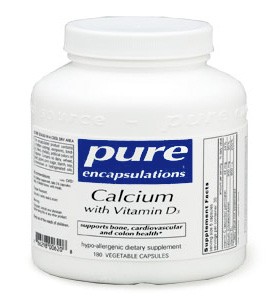 The supplement industry is a 2 billion dollar industry. Obviously, many of us are using vitamin and mineral supplements in an attempt to achieve some type of health benefit. But, does taking a daily multivitamin/mineral supplement actually improve your health?
The supplement industry is a 2 billion dollar industry. Obviously, many of us are using vitamin and mineral supplements in an attempt to achieve some type of health benefit. But, does taking a daily multivitamin/mineral supplement actually improve your health?
From a research standpoint, there doesn’t seem to be any long term studies that support a general multivitamin/mineral supplement for the average person. With that being said, it might be better to focus on a few specific vitamins and minerals in isolation that are more difficult to get in optimal levels. Here are a few recommendations:
Highest Priority
Vitamin D – Important for bone and heart health. One of the best ways to get Vitamin D is from the sun but, unless you live in the tropics and have frequent bare skin sun exposure it is difficult to get enough. Foods containing Vitamin D include cold water fish (herring, salmon, trout, catfish), fortified soymilk and orange juice. If your sun exposure and intake of these foods is inadequate, you should consider supplementing 2000 i.u. of Vitamin D every day.
Vitamin K – Important for bone and vascular health. One of the best ways to get Vitamin K is to eat green leafy vegetables (kale, spinach, collards, mustard greens). Are you eating enough? If the answer isn’t a resounding yes, then consider supplementing 1000 mcg every day.
Others to Consider
Calcium – Important for bone and heart health. Individuals with low green leafy vegetable and dairy/milk-substitute (soy, almond, coconut, hemp) intake should consider supplementing with 300-500 mg of calcium citrate per day.
Zinc – Important for immune system support and tissue development and repair. Individuals with low seafood, nuts, seeds, wheat germ and mushroom intake should consider supplementing with 30-60 mg of zinc per day. Also can be depleted in athletes who sweat excessively.
Magnesium – Magnesium activates the enzymes necessary for a number of physiological functions, including muscular contractions, cardiac function, and the regulation of the acid-alkaline balance in the body. Many different types of nuts contain magnesium but they are underconsumed due to their high caloric content. Individuals with low dark green leafy vegetables, nuts, seeds, beans and lentils intake should consider supplementing with 150-500 mg per day.
Other vitamins and minerals are either consumed enough even if you have a poor diet or there isn’t enough research available to recommend proper supplementation dosages.
Before taking a vitamin/mineral supplement you should seek professional guidance from a healthcare provider who understands your health history. If you would like to discuss your individual needs for vitamin/mineral supplements with one of our BTF doctors, please email us at info@backtofunction.com or call 310-534-1900 today.
Note: BTF uses and recommends Pure Encapsulations supplements for a number of reasons including their use of high quality hypoallergenic ingredients, manufacturing and quality control excellence and certified independent testing of raw materials.


